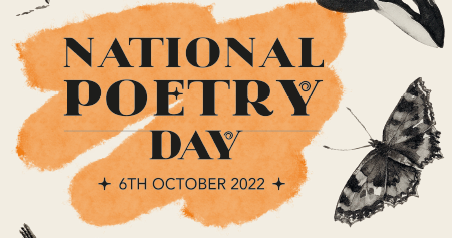You can find poetry in your everyday life, your memory, in what people say on the bus, in the news, or just what’s in your heart.
Carol Ann Duffy, former poet laureate
National Poetry Day is taking place on Thursday 6th October this year, on which we are encouraged to read, share, write and celebrate poems. Marking this within your classroom is an excellent opportunity to raise children’s awareness of poetry and help them to discover the different varieties that are available to enjoy. Many teachers may feel less confident in their knowledge of poetry compared to other genres, but poetry has real power. As Carol Ann Duffy has said, ideas for poetry can be found anywhere in the environment; whether that be something we have seen, heard, learnt or felt. This versatility could be utilised within the classroom to help children become proficient readers and writers.
Due to their brevity and diversity, poems can be shared with the children for enjoyment, to promote language development and a basis for discussion. Poetry often focuses on feelings, providing opportunities for social and emotional development. For older readers, poems can address powerful and moving issues that young people can relate to. Additionally, the subjective nature of poetry means it is open to many interpretations. Discussion based around a shared verse in class could encourage children to develop and share their own opinions, as well as listening to and respecting those of others.
Poetry is very much a part of our culture, both in history and the present day. From the sonnets of Shakespeare to works of the much-loved children’s author Julia Donaldson which are shared at bedtimes across the country; people are familiar with verse and it has the ability to transcend generations. Song lyrics are also a perfect opportunity to read and pick apart language use, rhythm and rhyme with your class in a way that would spark their interest and excite them. Poetry can be a powerful way of relating to others. Tony Walsh, whose poem is featured in the selection for this year’s National Poetry Day, demonstrated the power of verse when his performance of ‘This is the Place’ brought the city of Manchester together following the tragic events of 2017, and award-winning writer Maya Angelou was an inspirational civil rights activist in America, sharing her experiences through her memoirs and poems.
Poetry in language-rich classrooms builds shared memories for all children. The predictability of rhymes in poems and songs also helps children to memorise and re-use newly acquired words and phrases.
The Reading Framework (DfE 2021)
Poems are fantastic tools for developing all areas of Literacy. The Reading Framework (DfE 2021) stresses how daily exposure to poetry when children are emergent speakers, provides strong foundations on which language skills can be built. As children continue their journey in education, poetry helps extend vocabulary and develop oracy skills. Children can explore how it is possible to use words to express themselves, often free from the more rigid grammatical structures of other genres. Poetry can be funny, nonsense, descriptive, rhythmic, emotive…the scope for creativity is endless! As there is no right or wrong, it can be a very useful focus for helping children become more confident writers.
The theme of this year’s National Poetry Day is ‘The Environment’, with featured poems centred around nature and the diverse, ever-changing landscape around us. On their website, the organisers have provided access to poems kindly shared with permission from the writers, as well as a selection of lesson ideas to use alongside several of the texts. To add to this, we have written a special P.I.C.C. a Text unit of work for KS1, based on the children’s book ‘Somebody Crunched Colin’ by Sarah Roberts.
You can download the unit of work for free here.
As the impact of poetry within the classroom is so broad, National Poetry Day is a great opportunity to ignite children’s interest in this wide-ranging form of literature; whether that be sharing a funny poem or one related to the children’s interests, performing verses aloud or completing a poetry unit of writing. Newly-appointed Children’s Laureate Joseph Coelho aims to make his writing accessible and relatable to all, meaning his books are an excellent starting point to promote a love of poetry within your class. Whatever you choose to do to mark the occasion, please bear in mind the opportunities poetry can give to enthuse, empower and motivate young writers.
If you would like support on developing your approach to the teaching of poetry in your school, please contact us at: Catherine.delaney@oneeducation.co.uk
I have never started a poem whose ending I knew. Writing a poem is discovering.
Robert Frost
















